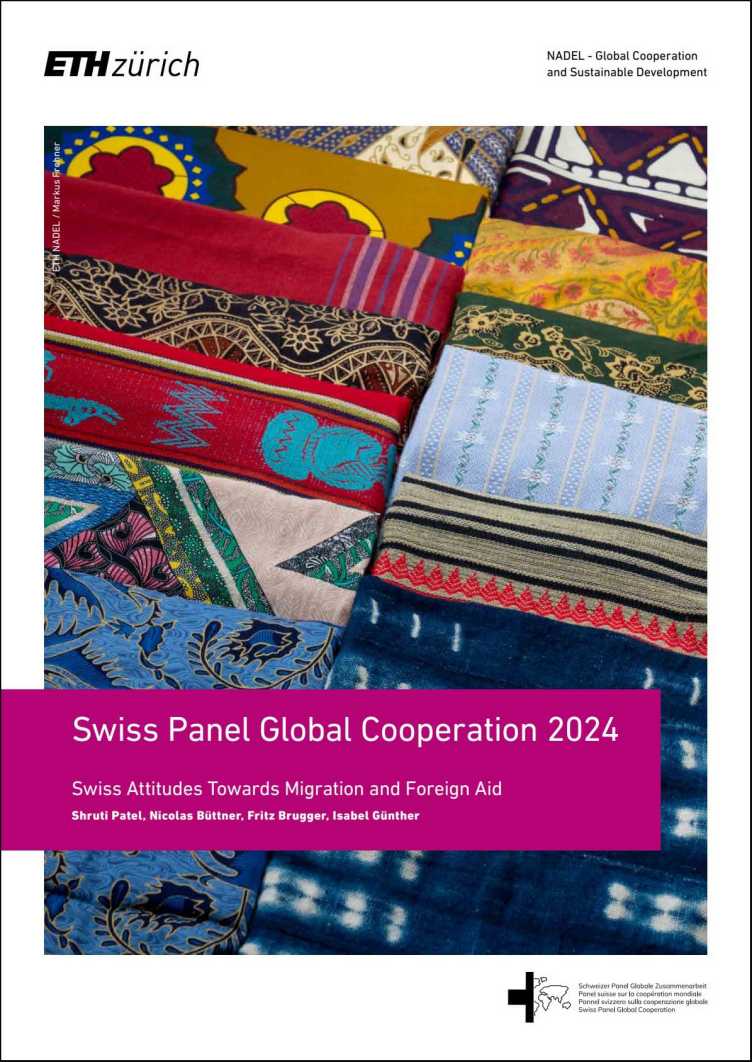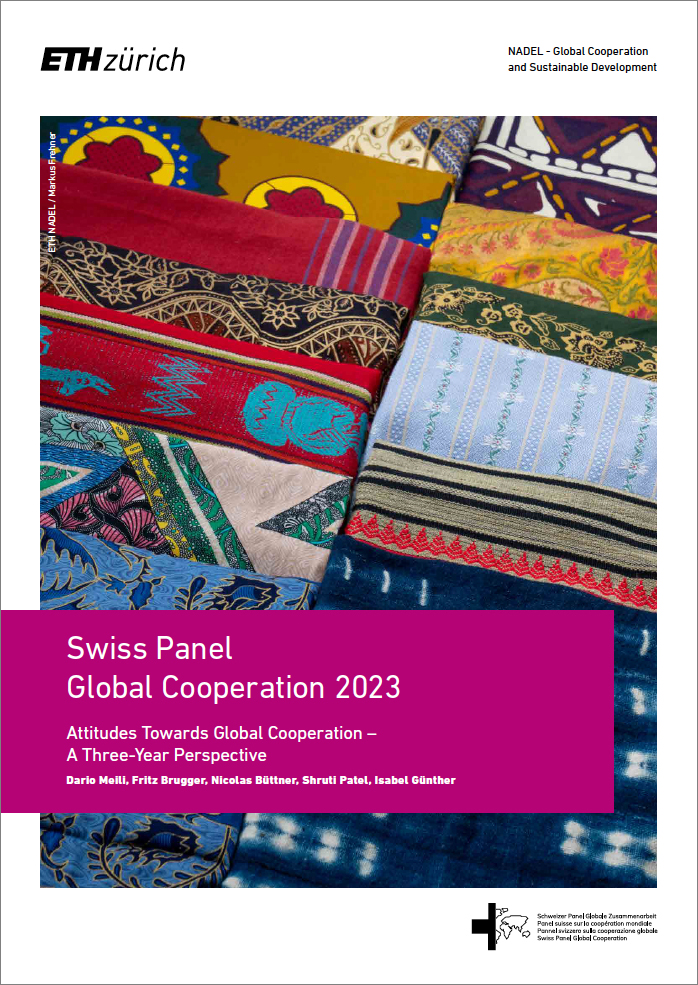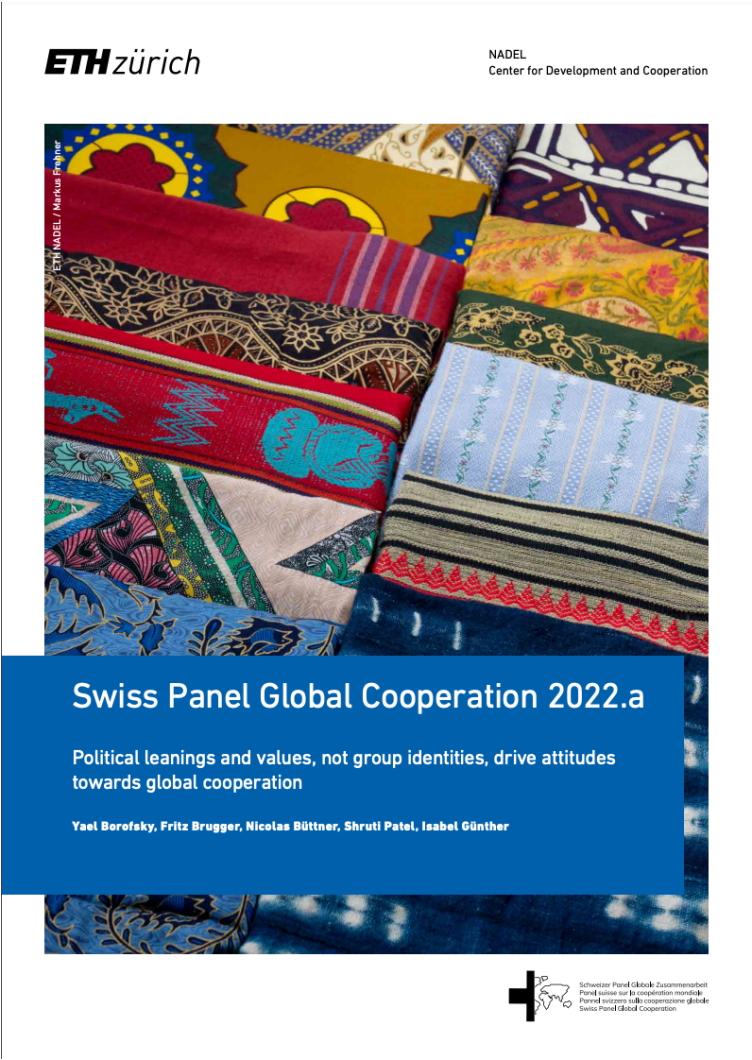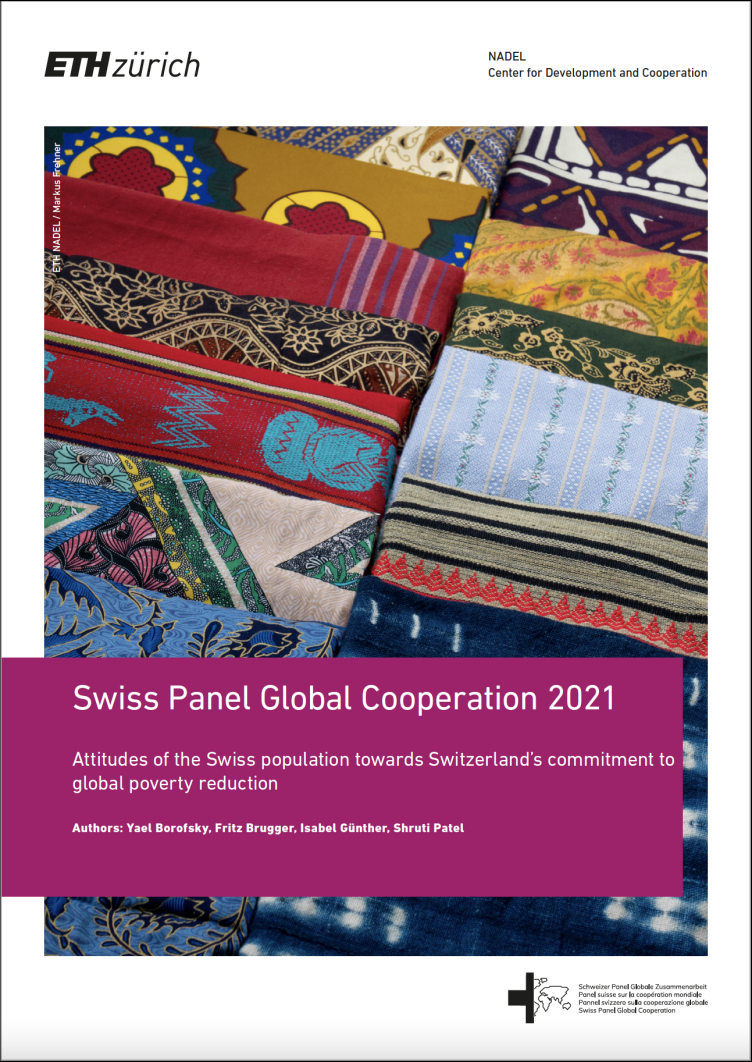Swiss Panel
In 2021, NADEL conducted the first nationwide survey on the attitudes and commitments of the Swiss population to development cooperation. The Swiss Panel Global Cooperation will be carried out annually for 10 years until 2030. In 2015 all United Nation Member States agreed on the 2030 Agenda for Sustainable Development to reach external page 17 Sustainable Development Goals (SDGs) – to reach peace and prosperity for all people and the planet by 2030.
If you have received an invitation letter to participate in the Swiss Panel Global Cooperation survey, you can take part via the following link: or 044 505 65 05
How do Swiss residents view international cooperation? What is their state of knowledge about issues of global poverty, inequality and the Sustainable Development Goals (SDGs)? Where do they see a need for action, and how willing are they to give political support to concrete measures taken by Switzerland?
With the Swiss Panel Global Cooperation, NADEL collects data for scientific research through an annual representative survey, contributing to public debate and opinion-forming on one of the greatest challenges of our time: global inequality and international cooperation.
Sustainable development is a national objective enshrined in Switzerland’s Federal Constitution. Article 73 (Sustainability) calls for “...a balanced relationship between nature and its ability to renew itself, on the one hand, and the demands placed on it by the human race, on the other”.
However, global sustainability goals can only be achieved if they are supported by the population – in personal behaviour and with regard to political decisions.
This requires an awareness of international connectivity, belief in global equality as a desirable goal, and the willingness to take corresponding choices in policy decisions.
Global sustainability needs increased international cooperation at a time when scepticism towards international and multilateral cooperation is growing, existing structures are questioned and the prioritisation of national interests is leading to a weakening of multilateral institutions. Such dynamics can undermine support for global sustainability goals and limit the scope for policy action.
With the help of an annual representative survey, we want to measure and make visible recent developments and long-term trends in the opinions, knowledge, and attitudes of Swiss residents in relation to global poverty, inequality, and international cooperation. The survey thus serves the long-term interests of politics, science and the public.

Survey results 2024:
Key findings, report, and data


